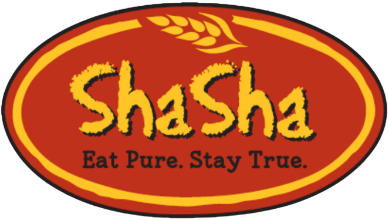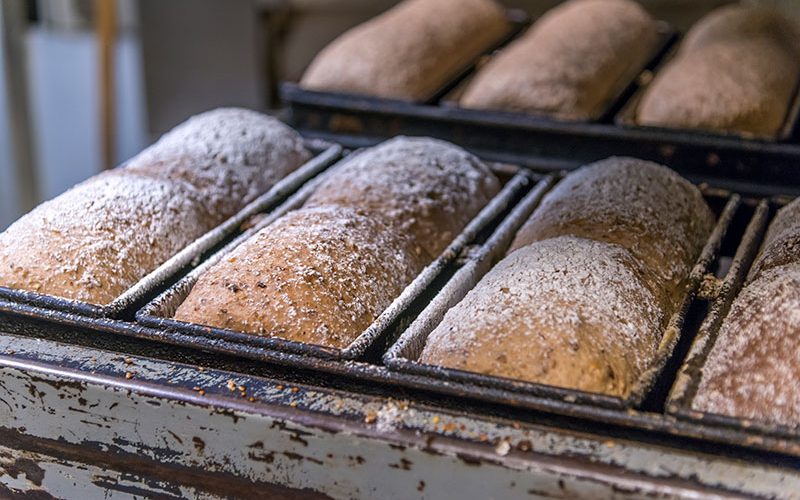Though modern society is brimming with easy access to fast food, suspiciously-labelled grocery items and conflicting nutritional research, consumers are beginning to speak more openly about their desire for higher quality foods to feed their families, and are becoming more willing to pursue and purchase foods made using traditionally prepared methods and ingredients that are wholesome, nourishing, and good for the environment.
Bread has been (and still remains) a staple sitting at the center of families’ kitchen tables for centuries. As the subject of quality food continues to saturate popular press, producers are witnessing their consumers’ growing need to understand where their foods come from and how they’re made. The endless variety of breads and the way they’re each made differs greatly. They also don’t all provide the same nutritional benefits. All bread is not created equal, and in this article, we’ll be demystifying any misconceptions that all “fresh,” “local” and “organic” breads are made the same and provide similar nutritional benefits.
Before the patient process of making bread became commercialized, consumers would purchase their precious loaves from their local baker who made all his or her breads following traditional artisan methods. This involved healthy yeast and bacteria strains that required longer fermentation times, yielding sourdough loaves that were more easily digested and provided more nutritional benefits. Although there has yet to exist any legal regulation regarding labeling food items as “artisan,” true artisan-crafted bread is made following a process much different to that of your typical, commercial supermarket bread.
Artisan sourdough bread is made by following a tedious process using premium ingredients (like whole grain flours and sprouted grains) that begins by feeding a starter, mixing and proofing, and eventually baking—a system of techniques requiring a minimum of 24 hours from start to finish. A strong, healthy sourdough starter (or bacterial culture) contains active enzymes that break down the dough’s complex carbohydrates over longer fermentation periods, resulting in a bread that is much easier to digest, while yielding a rich, nutty, characteristically sourdough flavour. A long fermentation time permits the culture to do its work for a minimum of 24 hours, allowing for the enzymes and gluten in the flour to be sufficiently broken down during fermentation. The bread is then left to naturally leaven for a minimum of 4 hours before baking.
Eventually popular growing brands became commercialized, producing tens of thousands of loaves of bread per day to be shipped internationally. Mass-produced breads are made using a commercial yeast known as saccharomyces cerevisiae, which allows for exponentially shorter fermentation times (closer to a maximum of 45 minutes), as well as no need for proofing, resulting in less nutrition and digestibility, and a lack of depth of flavour. These loaves often contain additives, conditioners, oils and sugars to lend a more pleasing taste and lengthen the breads’ shelf life to allow for mass production and profit. Unfortunately, these breads not only lack sourdough’s naturally nutty smell, textural variety and quality, but also their nourishment and sustenance.
As consumers’ desire to learn more about their food grows, so does the demand for higher quality products. Customers are now more willing to pay a premium for what they consider the best available product to feed their growing families. Small local bakeries like ShaSha Co., intentionally limit their daily rate of production to allow for breads that yield superior quality. Long fermentation times allow for optimal nutrition, resulting in breads that are naturally leavened and good for you! Because ample time is spent on each baked item, the breads are always fresh when purchased, preserving time-honored fermentation, and providing superior, unrivalled quality.
While clever marketing gimmicks and poor labelling standards continue to saturate our neighborhood grocery stores, it remains consumers’ responsibility to ask questions and actively educate themselves while seeking the most optimal foods made by companies who take pride in providing superlative value regardless of lengthy production times. At ShaSha Co., we take pleasure in providing only the best quality organic foods that honour truly traditional artisan methods, while supporting local farmers and using eco-friendly materials and solar energy to support our planet.
To learn more about ShaSha Co.’s seven different varieties of traditionally, artisan-crafted sourdough bread click here.
Sources:
https://prezi.com/wwktzwrmjz3k/small-bakeries-vs-commercial-bakeries/?webgl=0
http://www.independent.co.uk/life-style/food-and-drink/features/the-rise-of-artisan-bakeries-has-led-to-diy-classes-and-a-campaign-for-real-bread-10251420.html
http://www.therecord.com/shopping-story/4043141-what-is-artisan-baking-and-how-is-it-different-/
http://www.bonappetit.com/trends/article/artisanal-bread-guide
https://en.wikipedia.org/wiki/Baker’s_yeast
https://en.wikipedia.org/wiki/Saccharomyces_cerevisiae



